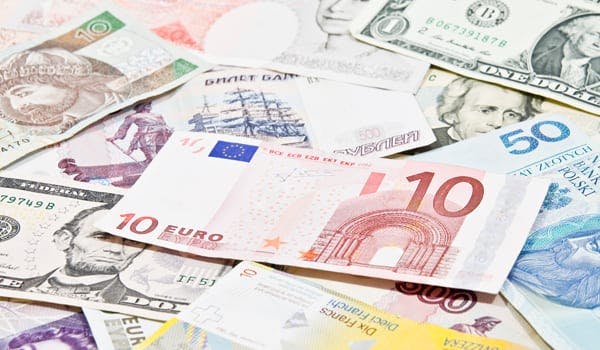In the film Wall Street, Gordon Gecko said, “Money never sleeps”, and this quote never rings truer than in the world of international trade.
A businessman in Australia may make a purchase one day from a supplier for €1,000 thinking it will cost them $1,700 only to pay their invoice days later and have it cost $1,800 after a slight shift in the exchange rate.
This situation is all too common and means that business owners do not know the true cost of their international purchases, which compromises their profit margins and cash flow.
If this is a situation you can relate to, there are a few cash management tips you can implement to ensure that foreign currency fluctuations do not dictate your businesses success.
Always take currency fluctuations into account
Before you set a price of a product for your local market, always figure out your minimum preferred margin and the estimated worst likely currency rate and work back from there. After all, if you have set a contract price for 12 months you are stuck with that price rain, hail or shine so make sure it is one that will help your business withstand the usual ebbs and flows of the currency you are paying in.
Pay early and pay less
A bird in the hand is worth two in the bush in any country, so ask your supplier if he/she is willing to negotiate a standard discount for swift payments. This discount can act as an additional buffer against currency fluctuations and establish you as a trusted business partner.
Lock it in
If you plan on doing a lot of business with a certain supplier, a profitable solution can be to lock in pricing through forward contracts. These forward contracts are basically agreements that you will trade in an ‘agreed exchange rate’ for a set period of time. The key is to work out what rate will work for both you and your supplier.
For example, the current rate of the Australian dollar to the US Dollar is 93.150 (*at the time of writing), so you might like to consider an agreed rate of 92.50 for 6 months. This lower rate works for both parties as it gives your supplier an instant edge over the current rate while also insulating your against any dramatic drops.
This way you can ensure there are no nasty surprises come invoice paying time and you can rest easy knowing that your products will remain profitable over that period.
Avoid multiple transactions
Fact: The more international transactions you make, the more money and time you will spend in the conversion and administration process. This can be limited through buying at higher volume (i.e. doubling your purchases to cover two months of stock rather than one). Apart from reducing conversion fees, you may also be able to negotiate a lower price based on higher purchasing volumes.
Invariably, it’s all about playing the long game and adopting an organised, safe and strategic approach to foreign cash management. That way you can sleep easy at night and avoid obsessing over the live FX rates.

